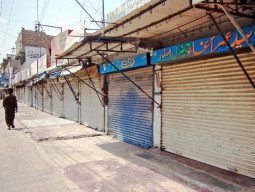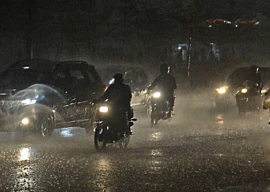
GILGIT: Days before the planned region wide strikes, the Awami Action Committee (AAC) has vowed to continue its movement till either the “fall of the government or of wheat prices.”
The AAC has called for a complete shutter down and wheel jam strike in Gilgit-Baltistan (G-B) from April 15 for an indefinite period. This is to press the government to reduce the price of wheat. To mount further pressure, the AAC has threatened to block Karakoram Highway (KKH) till their demands are met.
“By the time we announce the end of the strike, either the government or the wheat prices must fall,” said AAC Chairman Ehsan Ali. The AAC is an alliance of more than a dozen religious, nationalist and political groups formed earlier this year with the exclusive objective of lowering wheat prices to that of 2009. It later expanded its charter of demands to include complete end to electricity load-shedding and corruption in G-B.
“The people have understood they have been pitted against each other and made to fight. But it is in the past and we look forward to unite [residents of] G-B for our collective rights,” Ali told reporters on Sunday.
The district administration, however, has imposed Section 144 in Gilgit – declaring congregation of five or more men in one place illegal – in a bid to counter any possible agitation. Yet, preparations for the strike are in full swing with AAC paying little attention to the restriction.
Following widespread protests, the price of wheat was brought down last month to Rs14 per kilogramme from Rs17, but this was rejected by the AAC, which asked the government to further slash the price down to the earlier rate of Rs8 per kg.
In response to the AAC’s call for strike on March 10, streets of G-B wore a deserted look with markets shut down and roads empty.
Over the past few months, AAC has managed to forge extraordinary unity between Shia and Sunni clerics for the common good of the region. The clerics also visited ‘no go areas’ together and received a warm welcome from inhabitants.
“It’s a big achievement, which the government wouldn’t have been able to pull off despite spending millions of rupees over the years,” said Ali, referring to the uncharacteristic sectarian harmony.
Published in The Express Tribune, April 14th, 2014.








































COMMENTS
Comments are moderated and generally will be posted if they are on-topic and not abusive.
For more information, please see our Comments FAQ